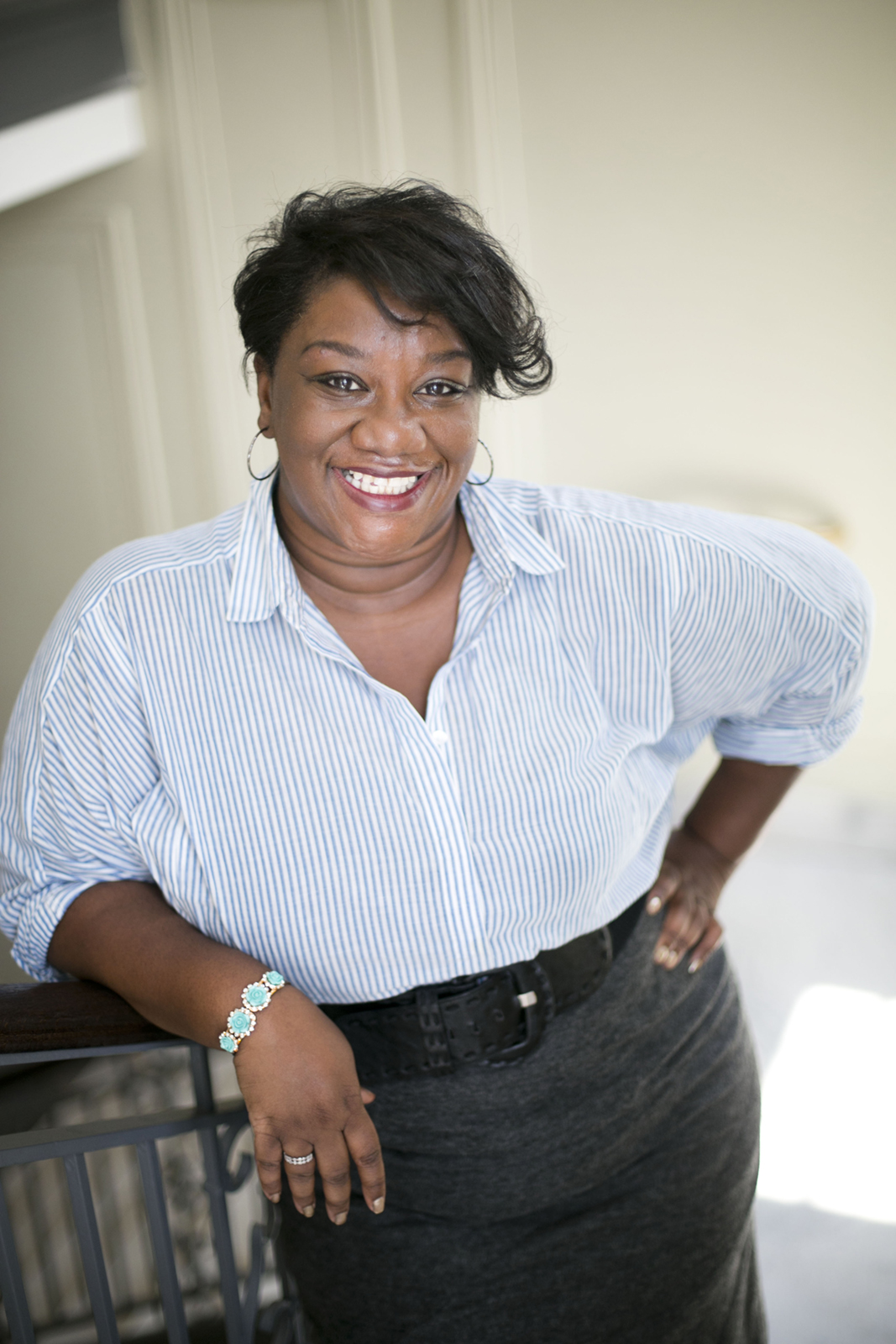Authors Tressie McMillan Cottom and Roxane Gay talk black feminism at Hammer event

Tressie McMillan Cottom, author of “Thick: And Other Essays,” spoke with author Roxane Gay at the Hammer Museum on Wednesday evening. The two discussed topics ranging from HGTV celebrities to Cottom’s essays, which consider black feminist theory. (Courtesy of Hammer Museum)
By Claire Locke
March 1, 2019 11:28 a.m.
Tressie McMillan Cottom and Roxane Gay discussed beauty standards, racism and HGTV celebrities all in one conversation.
The authors and cultural critics held a conversation at the Hammer Museum on Wednesday evening. While Cottom tackled black feminist and social justice issues with levity, Gay prompted her with questions about the former’s new collection of personal essays, “Thick.”
“This book is about black feminist theory and the way we understand the world,” Cottom said. “We experienced it thickly and we have to live it thickly.”
Event organizer Janani Subramanian said the Hammer hopes to highlight patterns of violence against black women and celebrate their contributions to fields including politics and medicine. The conversation between Cottom and Gay fits well with this theme as they are notable black feminist writers, she said.
The pair emerged onstage and began a lighthearted conversation about bizarre things they had seen in LA, such as a woman walking by with a cat on her head. But Gay quickly began to ask Cottom questions about “Thick,” starting with the title.
Cottom said she anticipated the connotations people would project on the title and its physical meaning. She explained that it was a play on words, since “thick” can be a physical descriptor of women’s bodies. Yet in this context she also intended it to describe an inclusive way to view the world. She said black women are most inclined to live “thickly,” which mean they have a broad viewpoint of the world which incorporates the experience of many groups. In contrast, Gay said that mainstream social media creates incentives for people to live “thinly,” and according to narrow white perspectives and beauty standards.
“You’ll never completely get it; you’ll never have the emotions that come with an experience,” Cottom said. “But you’ll have a better view of the world.”
Overall, Cottom said the book centers around black feminist theory and the way black women understand the world. Both Gay and Cottom said black women challenge the typical narratives of feminism, which are often centered around the experience of white people and don’t account for aspects of being black women.
Cottom and Gay also discussed the lack of diverse voices in journalism. Cottom said many major publications, such as The New York Times and The Boston Globe, did not have a black woman writing opinion pieces until this past year, and even asked her for writer suggestions when she pointed this out to them.
Additionally, Gay said some publications often have only one black female writer, and assume she will speak for all black women. She said she would like to see enough black women writers to the extent that she can find some she disagrees with.
“I am but one black woman thinker, and we contain multitudes,” Gay said. “Publishing expects that there can only be one.”
Adam Cobb, a fourth-year mechanical engineering student and technical director at a live news startup attended the event. He said he was interested to hear what the two speakers had to say about the obstacles black women face on the way to upward social mobility.
“This event confirmed a lot of what I’d already been concerned was the case in journalism,” Cobb said. “I’ve experienced firsthand the industry’s propensity to cast white journalists – and especially white male ones – in leading roles.”
Before the pair took around 10 questions from the audience, they discussed how celebrities sometimes adopt a black-inspired persona for personal gain. Gay said that artists commodify blackness until they realize it doesn’t work for them. Cottom joked how white artists often eventually give up the appearance and make a country album when it ceases to be profitable.
“Everyone likes ‘black cool’ but no one likes black burden,” Cottom said. “Black is fun up until a point it comes with costs.”
The speakers finished by answering a question asking what can be done on an individual level to dispel institutionalized stereotyping of black women. Both responded that they attempt to complicate the stereotypes by not participating in the script that is expected of them.
For example, Gay said people often assume there is something maternal about her and put her into a “mammy” stereotype, implying she must be an emotionally wise, motherly figure. Gay said an example of this stereotype today would be Oprah Winfrey. She feels that script does not fit her – she jokingly said she sees herself as more of a ‘daddy’ than any maternal archetype. Defeating the stereotype requires the bravery to disappoint people’s expectations, she said.
“You have to actively resist, and it’s a challenge on a personal and political level,” Gay said. “We live in a culture that resists nuance and complexity, but we need to demand complexity.”

